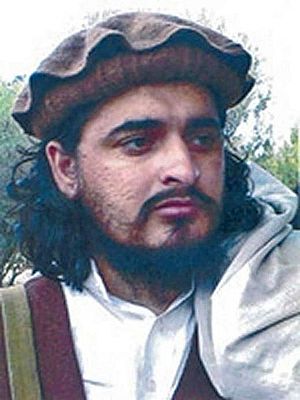On November 1, a U.S. drone strike in Pakistan’s Taliban-controlled tribal agency of North Waziristan killed five militants including Hakimullah Mehsud, the leader of the movement which is called Tehrik-i-Taliban Pakistan (TTP) – the Pakistani Taliban – as they left a mosque in the village of Danday Darpa Khel, in the Miramshah area of North Waziristan.
Initially, U.S. intelligence did not confirm the death, but Pakistani intelligence officials claimed that Hakimullah was indeed killed in the strike – although when approached for a statement they did not speak on record. Eventually, the death was confirmed as the TTP themselves confirmed the “martyrdom” of Hakimullah. While the death of Hakimullah has erupted a flurry of debates about Pakistan’s relations with the U.S., and its possible peace talks with the Taliban, the TTP has threatened Pakistan for playing politics and warned the United States that it will take revenge.
This strike was carried out exactly one day after the government of Pakistan announced formal negotiations with the Pakistani Taliban. It is unclear, however, whether the U.S. was really targeting Hakeemullah himself, as it did not confirm this information. The report released by the United States at the time said that the strike killed militants and did not confirm the successful killing of the Taliban leader. If it is true that the United States did not have the information of who exactly was being killed, this also begs the question whether the United States is as accurate and precise in these strikes as it claims to be.
The New Face of the Taliban, Not up for Peace
The new elected face of Pakistani Taliban is Mullah Fazlullah – whose real name is Fazal Hayat. He was also nicknamed “Radio Mullah” in 2005 when he started preaching via Radio to listeners in Swat. He had led the Taliban’s vicious rule in Swat valley between 2007 and 2009, but later lost hold after a military operation. He also has a record of having led a deadly fight against the Pakistani military in Buner and Dir for several years. Fazlullah’s death has been misreported by local and foreign media various times. Some locals from Swat say, “Fazlullah is less open to reconciliation than any of the Mehsud’s (both of whom have been killed in drone strikes).”
Born in the Imam Dherai area of Swat in 1973, Fazlullah is son-in-law of Maulana Sufi Muhammad, the founder of Tehreek-e-Nafaz-e-Shariat-e-Mohammadi (TNSM), a banned group that aims to impose Shariah in the country.
As a first step Mullah Fazlullah declared taking back the option of peace talks with the Pakistani government from the table. “Peace talks with the government are not possible as Pakistan is not an authority and is under U.S. slavery,” said TTP’s acting chief Asmatullah Shaheen.
The TTP accused Pakistan for playing a double game of “politics” and said negotiations would be impossible since the Pakistani government has enslaved itself to U.S. demands and actions.
The TTP also hinted at a real possibility of reprisal. As stated by Shaheen: “Everyone will know when we will avenge the death of Hakimullah Mehsud.”
Among many others in Pakistan, the Interior Minister Chaudhry Nisar Ali Khan blamed the United States for spoiling Pakistan’s chance for peace talks with the Taliban.
In a speech, Nisar accused the United States for disrupting talks on purpose while Pakistan had been struggling to solve its internal security issue. Nisar also accused the Pakistani media of misreporting and misrepresentation.
While Nisar has been speaking fervently in support of peace talks with the Taliban, the question however remains intact: were these peace talks going to work anyway?
Peace talks with a militant group initiated by a man with $5 million bounty on his head, who was involved in Benazir Bhutto’s murder in a blast that killed hundreds of other innocent civilians, who was behind the Marriot blast, and who manipulated Islamic teachings into recruiting young boys who were not terrorists, sounds less hopeful and more hopeless.
Analysts predicted a severe retaliation right after Hakimullah’s killing on November 1. Although there haven’t been any attacks so far, Pakistan is under high security alert and analysts believe that the TTP will become more difficult to handle in the days to come.

































